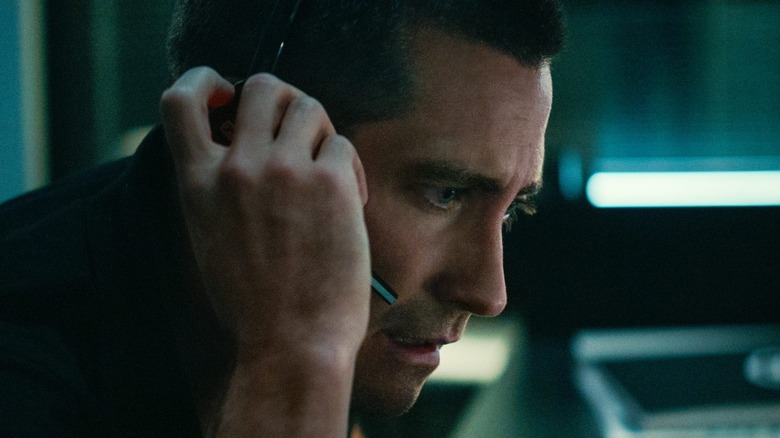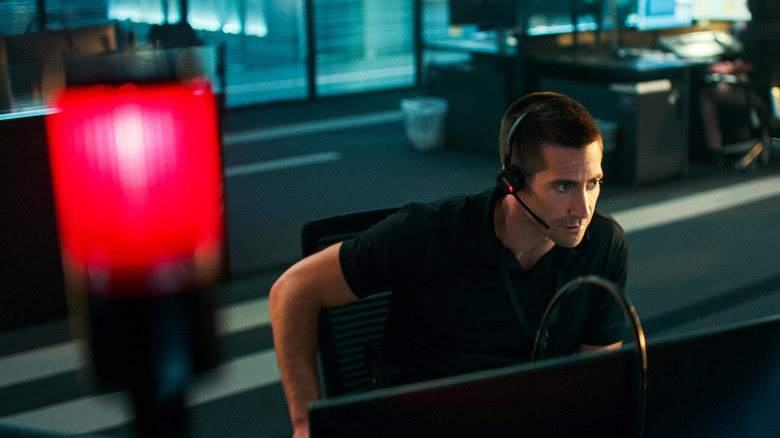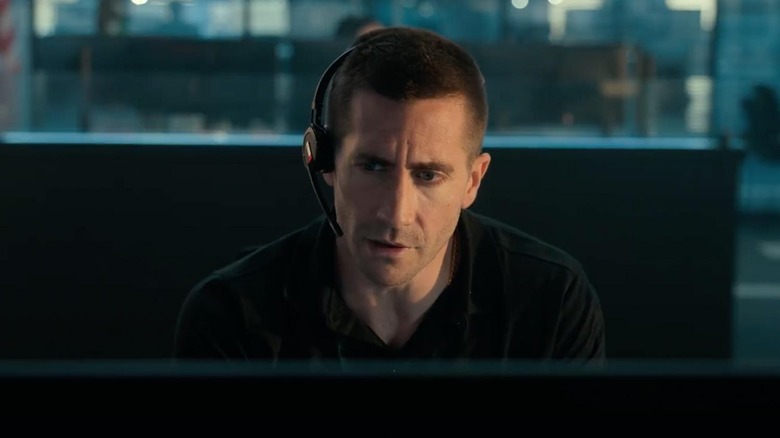TIFF Movie Review: The Guilty
We've thankfully moved past the era when every single hit movie not in the English language is granted a Hollywood remake. The advent of streaming has made the original films, which would usually be granted limited theatrical releases, far more accessible, making it all the more baffling why producers would still be lining up to make a carbon copy of something that already exists. For remakes to justify their existence now, they have to boldly transform the material so it becomes near unrecognizable — something along the lines of Martin Scorsese taking the "Infernal Affairs" trilogy, and condensing it into the mightily entertaining "The Departed." But this is rarely the route taken; recent Hollywood is littered with a string of flops, from Spike Lee's take on "Oldboy" to a remake of "The Secret in Their Eyes," that made less impact culturally and financially than the films they were based on, every review just urging people to watch the original instead.
Unsurprisingly, a faithful remake of something that was Oscar-nominated for Best Foreign Language Film (now Best International Film) just three years ago does equally little to satisfy, replicating the plot beat for beat, with the biggest change being the city it takes place in. And in this case, changing the setting doesn't change a single thing about the overarching drama, as the high concept of "The Guilty" is that it takes place entirely with a 911 call dispatch center. Director Antoine Fuqua, best known for action thrillers like "Training Day," tries to make this a more stylish film than the original procedural, but there's only so much you can do to add a unique polish to a movie carried entirely by a lead performance and plethora of plot twists that are heard and not seen. You may very well enjoy it if you've not seen the original — but it doesn't mean that it's not a pointless filmmaking exercise.
Stop me if you think you've heard this one before...
Jake Gyllenhaal stars as Joe Bayler, a disgraced cop awaiting a trial following charges of assault against a teenager. Until then, he's working as a dispatch operator responding to 911 calls, a role he doesn't have the patience or empathy to do effectively. All that changes the night before his court hearing, when he gets a call from a confused woman named Emily (Riley Keough), who appears to be getting kidnapped by her partner, leaving her young daughter and baby son at home alone. Realising he has to act quickly in order to save a life and protect two young children, an increasingly frantic Joe works throughout the night to solve the case — a case which, as is always the case with this brand of crime procedural, is not at all what it seems.
The 2018 film "The Guilty" might be the best movie of recent years that has absolutely zero rewatch value. Once you're aware of all the twists and turns that power the narrative, it can't help but feel mechanical, every plot development a new gut punch that loses its impact the second you know where it's going. This is largely due to the very nature of its conceit; there are very few details to pick up on in repeat viewings due to the confined setting, and certainly no directorial flourishes that would make you rush to return. It's a well-executed procedural, but one that takes place in the least cinematic setting conceivable. You can imagine why an actor would want to remake it, seeing as it functions as a leading man showcase, but it's difficult to understand why anybody would want to rush back to the clinical confines of this office building environment.
Gyllenhaal is engaging in the lead role, even if his performance skews to more openly melodramatic territory than his predecessor. Of course, cynical viewers will notice that the actor was quick to snap up the rights to an international remake shortly after the first film became an Oscar contender — a very clear sign that this is his big attempt to finally secure his second nomination from the Academy. This might be why the material feels more overwrought than the film it's been adapted from; the smaller emotional moments have been transformed into something significantly more melodramatic, even as the plot beats remain the same. It's the sight of an actor tailoring a pre-existing film to become nothing more than an endless chain of potential Oscar clips, punctuating every insignificant moment with a hysterical choice, be it bursting into tears or angrily throwing items off his desk.
From Copenhagen to California
This could also be a byproduct of the screenplay from "True Detective" creator Nic Pizzolatto, which feels like the awkward product of an A-list screenwriter being hired to make a stripped-down thriller with bare-bones dialogue, but can't resist adding writerly touches everywhere he can find them. The direction from Fuqua feels equally constrained. Whereas the original film gave no glimpses of the outside world, here the filmmaker keeps trying to visualize the scene of the crime, cutting to where officers are being dispatched to even if we still never see the people on the other end of the line. The original film could effectively function as a radio play, the narrative entirely driven via phone conversations. Fuqua seems to think of that as a bug and not a feature.
The narrative is very much in the director's wheelhouse; he became one of Hollywood's most coveted action directors after making a thriller about corruption in the LAPD, after all, so a tale of a violent cop's attempt at redemption feels written specifically for him. Yet somehow, the biggest surprise is that the character is written far more empathetically than in the Danish original, his redemption not coming from a place of wanting to prove himself as a good person in the eyes of the public before his court case, but through a genuine desire to help. It's not exactly "copaganda," but it lacks many of the more interesting character details to iron out his flaws.
Other changes implemented to make the drama more regionally specific include making the action take place as California's forest fires reach a new peak, the setting calling to mind an altogether different (and altogether better) Gyllenhaal vehicle, 2018's "Wildlife," with that film's director Paul Dano one of the many A-listers who appear in voice cameos. In the heavy hands of Pizzolatto, the fires take on a biblical meaning, with several other clunky religious allegories that don't fully make sense within the context of the drama either — a later plot point revolves around delusions of mythical snakes. It's a film that feels overly written, desperate to prove itself as something on a higher pedestal than the simple thriller it is, and faltering on that front just because of how unbearably seriously it takes itself.
"The Guilty" is another A-list remake that never finds a reason to justify its own existence, a carbon copy that only adds a Hollywood polish to a story told near identically to the original.


